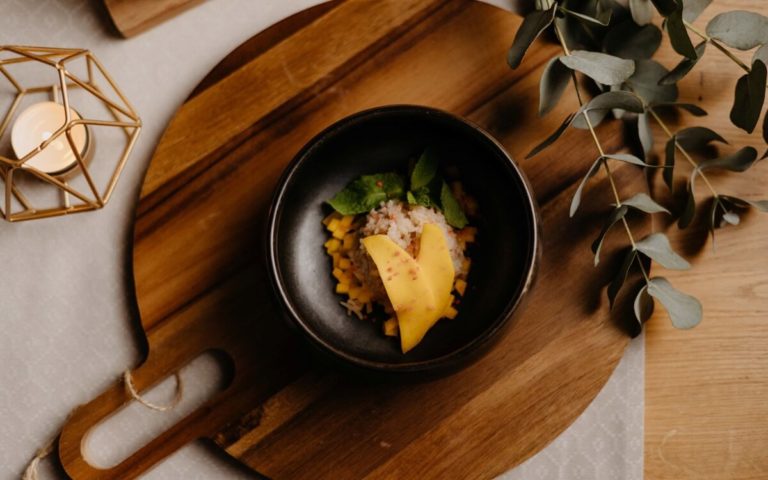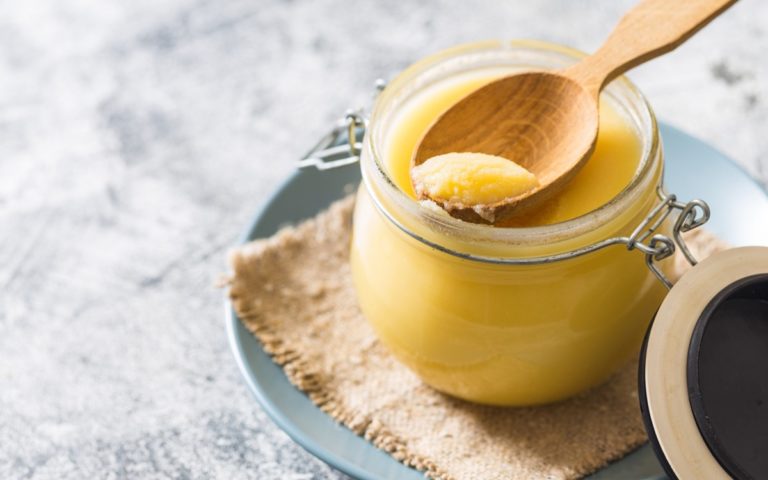Strengthening, balancing, even rejuvenating: the amla fruit is said to have these and other effects. Find out here what amalaki is all about and why it is a real insider tip, especially for the hair!
What is the Amalaki fruit?
Amalaki, amla, Indian gooseberry - the fruit of the amla tree has many names. Originally, this tree can be found throughout India, South Asia and parts of East Africa. But why is it that amla is no longer just so popular in India? How can we actually imagine the effects of this much-praised little superfruit?
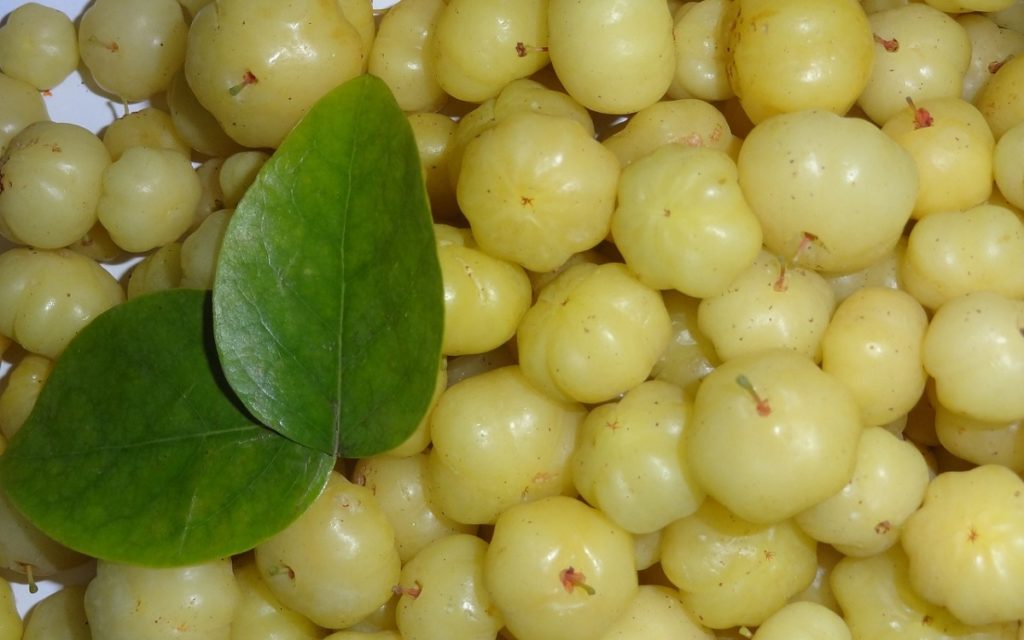

Amalaki: Effect in Ayurveda
The amalaki tree plays an important role in Indian tradition - so important, in fact, that the tree is considered a sacred plant in India and has its own public holiday. The berry is considered a fountain of youth and is an integral part of most people's everyday lives in India.
And what does the Ayurveda doctrine say about Amalaki? Of course: also very positive! Because the amla fruit combines five of the six flavors. It is primarily sour, but also bitter, sweet, spicy and tart (astringent).
Thanks to this almost unique combination , Amla can fulfill all three doshas back into a harmonious balance.
This Ayurvedic medicinal plant is often combined with haritaki and bibhitaki in Ayurvedic products. The result is Triphala (translated as "three fruits"), one of the most well-known herbal mixtures in Ayurveda.
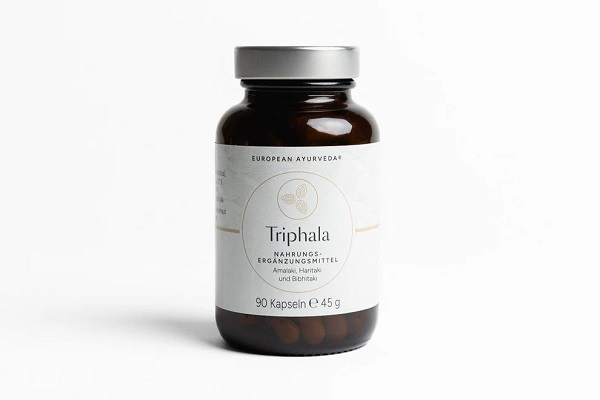

Discover Triphala in our online store now
Triphala has proven itself as an Ayurvedic dietary supplement for centuries. It brings the doshas into balance and promotes a good gut feeling.
Whether in this combination or on its own, amla berries are considered helpful for various ailments. From coughs, headaches and digestive disorders to chronic illnesses, the fruit is relied upon in many situations.
What effect does Amla have?
Amlaki fruits are real all-rounders, it seems: they contain lots of heat-resistant vitamin C, carotene, riboflavin, iron and calcium. And that's just a small selection of the substances that are important for our health and for beautiful skin and hair (1).


The vitamin C content alone significantly strengthens the immune system (3). As a dietary supplement, Amalaki powder or capsules therefore ensure that infections don't even stand a chance and that we simply feel more powerful (2). The following effects are attributed to the amla berry:
- strengthens the body's defenses and has an oxidative effect
- helps to detoxify the body
- Stimulates the metabolism and digestion
- regulates cholesterol and blood sugar levels
- strengthens the hair and prevents hair loss
- ensures radiant, firm skin
From an Ayurvedic point of view, the medicinal plant is so unique because it stimulates a very excited pitta and prevents hyperacidity. Of course, these health-promoting conditions can also be achieved with other plants. However, no other natural remedy works as gently as Amalaki.
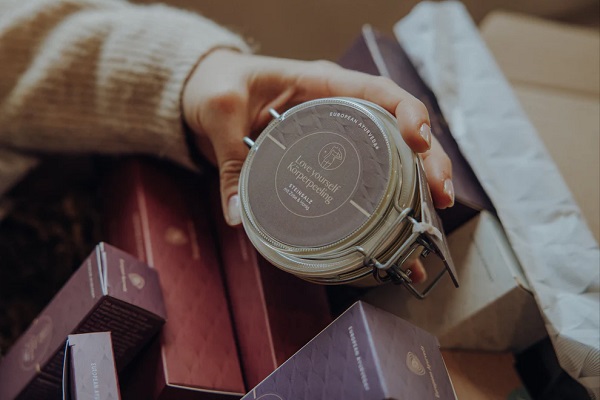

Discover the European Ayurveda® Inner Beauty Home Treatment
Beauty comes from within! With the Inner Beauty Cure for an all-round radiance - make your skin and hair glow from within and learn healthy routines.
Does Amla have side effects?
At the doses recommended by manufacturers, no side effects are generally to be expected from amla. However, as with many dietary supplements , excessive consumption can have a laxative effect. Abdominal pain and nausea are also possible.
However, if you have pre-existing conditions or take medication regularly, you should always consult your doctor before taking amla. As there have been no large-scale studies on humans to date, pregnant women, breastfeeding women and children are advised not to use amla.
Attention:
You should only take dietary supplements after consulting your doctor. The information provided in this article is for educational purposes only and is not a substitute for medical advice! The recommended dietary supplements should be taken at your own discretion.
Use of Amlaki: powder, capsules or oil?
One thing is certain: amla is good for you. However, the fruit can hardly be eaten on its own as it is very sour and bitter. It is traditionally made into juice, syrup or jam. In our country, however, it is mainly available in dried form.
But how can the medicinal plant be used in practice? In principle, you have three options:
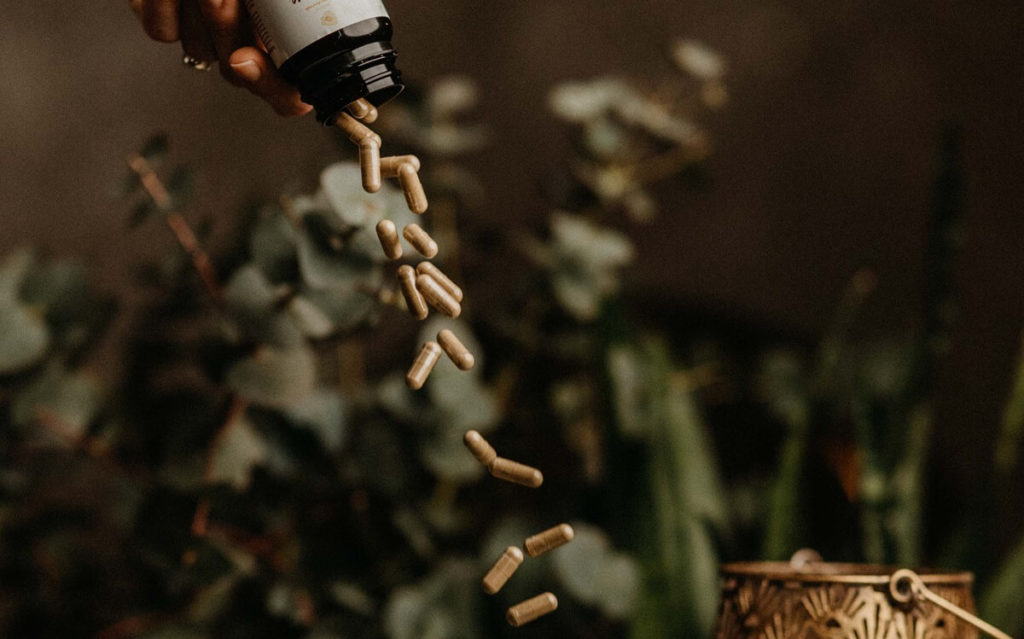

Amla powder
- You can mix the powder with water to create a versatile paste
- You can either use it to care for your facial skin or to relieve pain, for example on the scalp for headaches or on minor burns
Amla capsules
- You can simply take Amalaki capsules every day.
- You can promote your general health by strengthening your immune system and preventing acidosis.
- The nice side effect: you will soon see from your skin and hair that the plant provides the body with many important nutrients.
Amla oil
- You can massage the amla oil into your scalp.
Tips for the correct use of Amalaki
Amalaki has many advantages when used correctly. But what does "right" mean in this case? Here are a few tips on what you should look out for if you want to try these little energy packs for yourself:
1. pay attention to the origin
When buying, pay attention to the origin and only use products from purely organic cultivation that do not contain any artificial additives. This way you can be sure to fully enjoy the natural power of the amla fruit.
2. note the maximum daily dose
If you take Amla capsules or powder to improve your health, you should be careful not to consume more than 2-5 g per day.
As always in Ayurveda (and in life in general!), it is important to find a balance. Too much amalaki, for example, can lead to digestive problems, while the right dose supports your agni optimally.
3. consult a doctor if you have any pre-existing conditions
If you take medication regularly, we advise you to talk to your doctor before taking Amalaki. This will help to avoid unwanted interactions.
Amalaki as a natural hair treatment: Amla oil for the hair
Apart from the health benefits , Amalaki is also an increasingly popular hair care product. Almost every well-known hair cosmetics manufacturer promises beautiful, thick, shiny hair.
However, a lot can be promised - and it is not uncommon to be disappointed when the desired effect fails to materialize. But what about natural products such as amla oil? What can you expect from it?


The effect of amla on the hair
In a nutshell, Amalaki has the following effect on the hair: it strengthens the hair roots and improves the health of the scalp. And the reason for brittle, weak hair that falls out quickly is primarily a dry scalp with weakened hair follicles.
In other words, a healthy scalp allows the hair to grow stronger and gives it more shine. Dandruff and itching are also a thing of the past. Amla oil is also said to extend the growth cycle, making the scalp hair thicker.
The oil inhibits the so-called 5-alpha-reductase, a process that makes hair thinner or even leads to hair loss (5).
Using amla in hair care: 3 practical tips
However, there are also a few tips we would like to give you for hair care with amla oil:
Tip #1: Use regularly
Massage the oil into the scalp 2-3 times a week and leave it on for at least an hour or overnight before washing it out.
If you opt for the last option, it is best to place a towel over your pillow or put on a shower cap. You can apply the oil to damp or dry hair.
Do not use Amla oil much more frequently than indicated above. Too much of a good thing has the opposite effect and tends to dry out the scalp.
Tip #2: Combine natural product with oil
Amla oil is a natural product and does not contain any artificial fragrances. Some people have to get used to the herb-like smell.
If you don't want to work with pure amla oil, you can mix a high-quality amla powder into the oil you normally use - for example coconut or jojoba oil.
There are also amla shampoos, although you should make sure that they do not contain any silicones or kerosenes and that amla is listed as far forward as possible among the ingredients.
Tip #3: Wash out carefully
As with any oil treatment for the hair, the same applies when washing out: Be careful in the shower, as the oil makes the floor slippery.
Amla can prevent gray hair
Amalaki is said to have an antioxidant effect and to be able to slow down the ageing process. Although there are no scientific studies on this, it is assumed that amla delays the point at which melanin production slows down.
Melanin is the pigment that gives hair its natural color. The longer melanin is produced, the longer the hair color is retained. It is also often reported that hair care with amla makes the natural color stand out more.
Of course, Amla does not automatically give you the thick, full head of hair that Indian women have. However, Amalaki capsules or powder improve the health of the whole body, which contributes significantly to a clear complexion and a healthy scalp.
Feel good thanks to a real miracle cure from nature: there is a good reason why Amla is so highly valued in Ayurveda!


Ojas in Ayurveda: strengthen your cells and ensure healthy longevity
In Ayurveda, ojas is the life energy that influences our vitality, health and strength. It is therefore essential for healthy living and ageing. You can build up ojas through healthy routines - we show you how to do this in this article.
Cover picture: © natbits - istockphoto.com (file no.: 470551584)
Studies and sources:
(1) Javed, S., Nasim, T., Zia-Ul-Haq, M. (2023). Amla. In: Zia-Ul-Haq, M., Abdulkreem AL-Huqail, A., Riaz, M., Farooq Gohar, U. (eds) Essentials of Medicinal and Aromatic Crops. Springer, Cham. https://doi.org/10.1007/978-3-031-35403-8_3.
(2) Khalid Muzaffar, ., Sofi, S. A., Makroo, H. A., Darakshan Majid, . & Dar, B. N. (2022). Insight about the biochemical composition, postharvest processing, therapeutic potential of Indian gooseberry (amla), and its utilization in development of functional foods-A comprehensive review. Journal of Food Biochemistry, 46, e14132. https://doi.org/10.1111/jfbc.14132.
(3) Gul, M., Liu, Z.-W., Iahtisham-Ul-Haq, Rabail, R., Faheem, F., Walayat, N., Nawaz, A., Shabbir, M. A., Munekata, P. E. S., Lorenzo, J. M., & Aadil, R. M. (2022). Functional and Nutraceutical Significance of Amla (Phyllanthus emblica L.): A Review. Antioxidants, 11(5), 816. https://doi.org/10.3390/antiox11050816.
(4) Shanthi S., Begum M. Sahina, Senthuja M. (2021). In-vitro antioxidant and anti-aging activity of a traditional ayurvedic formulation. Research Journal of Pharmacy and Technology, 16(8), 3521-3524. http://dx.doi.org/10.52711/0974-360X.2023.00581.
(5) Akhbari, M. et al. (2024). The effect of an oral product containing Amla fruit (Phyllanthus emblica L.) on female androgenetic alopecia: A randomized controlled trial. Journal of Ethnopharmacology, 318(A). https://doi.org/10.1016/j.jep.2023.116958.


